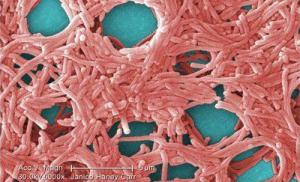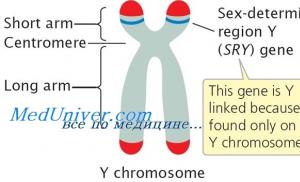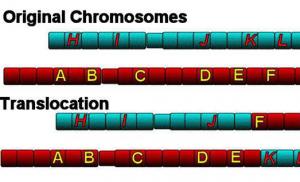Tolerance as a medical-biological and socio-psychological term. Tolerance - what is it? And what could it be? Biological tolerance - what is it?
Tolerance - what is it? What is hidden behind this concept today, when it is used so often in modern rhetoric? It is often associated with the construction of multicultural societies and related ethnopolitical problems. Without downplaying the importance of such issues, it should also be noted that this concept covers a wider range of meanings.
Biological tolerance - what is it?
Initially, this term was used precisely by biologists, who used it to denote the corresponding properties of living organisms. Translating the word “tolerate” from Latin, we get literally “patience” and “addiction.” That is, this is the name given to the ability of the immune system to adapt to antigens. For some reason, an immune-tolerant organism does not produce antibodies to counteract the antigens that have entered its body.

And it should be noted that the development of tolerance in this area is not always negative. More often, on the contrary, the body does not reproduce antibodies precisely because there is no need for them. For example, the development of a fetus in the mother's body will never cause rejection in her body. This is also tolerance, and in this case it is a fundamentally important necessity of life. Environmental scientists also use Tolerance - what does it mean to them? And in this case we mean the ability of organisms to perceive and survive in a very wide range of climate conditions. This is also a very important and useful characteristic of the body, isn’t it?
Social tolerance - what is it?
And in this sense, the concept is used in very different planes. It can be applied to people with disabilities, women, and sexual minorities. In any case, to any social categories. At the same time, tolerance, the meaning of which is most often associated with interethnic problems, has a clearly negative connotation. Contemporary far-rights in other countries and in the Russian context have made great efforts to turn tolerance into a dirty concept, trying to make any argument in its defense a ridicule. And yet it must be remembered that tolerance towards representatives of a different culture or race is the basis for the normal and long-term functioning of any human society.

And it does not at all imply some kind of automatic submission to inappropriate actions, for example, on the part of national minorities. It often happens that migrants who were brought up in a completely different system of social relations and values try to transfer it to new countries. However, tolerance cannot in any way be extended to acts that openly contradict local norms. They should not be subject to patience or humility at all. Such problems need to be solved not by closing borders - globalization is still a progressive phenomenon that can hardly be stopped. Problems can be solved quite effectively only through the education of these peoples and raising their socio-economic and cultural development to the level of advanced societies on the planet.
In addition to social justification, there is biological confirmation of the important role of tolerance in the life of the human body. The biological prerequisite for the emergence of tolerance, in my opinion, is homeostasis. Homeostasis (from the Greek homeo - identical and stasis - state, status) in physiology is the relative dynamic constancy of the composition and properties of the internal environment and the stability of the basic physiological functions of the body in relation to external influences. Homeostasis is the result of complex coordination and regulatory relationships carried out both in the whole organism and at the organ, cellular, and molecular levels. Thanks to adaptive mechanisms, the physical and chemical parameters that determine the vital activity of the organism change within relatively narrow limits, despite significant changes in external conditions. Tolerance also ensures the body's resistance to external influences - it appears as a consequence of the body's adaptability and resistance to stressors. Under the influence of stressors, adaptability begins to increase, and tolerance grows along with it. In combination with homeostasis and physiological adaptability, tolerance is aimed at maintaining the relative constancy of the internal environment.
But tolerance is more likely aimed at protecting the body from the influences of the social environment, rather than influences of a chemical, physical or purely biological nature. In the implementation of adaptability, and therefore tolerance, the reactivity of the body is of great importance, i.e. responses to various influences, which are called general adaptation syndrome (stress itself), and an increase in the tolerant background. Tolerance is associated with one of the most important principles of the development of biological systems - their reliability. There are innate mechanisms of tolerance (genetic, morphological, physiological) and acquired in ontogenesis (morphological, functional and behavioral). The development of stress reactions is multistage: the alarm phase, the resistance phase and the exhaustion phase successively replace each other. The second stage of stress - the resistance phase - is most associated with the phenomena of tolerance. The stability (resistance) acquired by the body ensures tolerance of a stressor of increased strength, i.e. a tolerant state to its effects arises and adaptation occurs (the body adapts).
Thus, tolerance, on the one hand, manifests itself as a genetically dependent ability of the organism to be resistant to stressors, and on the other hand, as the basis of adaptability. A person is able to reduce the impact of excessive factors on him, thereby increasing his own tolerance to them. This, from the point of view of biological mechanisms, is a passive reduction in the aggressiveness of the influence of the environment due to the adaptive capabilities of the organism. But a biologically active increase in resistance is also possible, i.e. tolerance to environmental factors. At the same time, stress mechanisms are activated. And they will be effective until the genetically determined reaction norm or adaptive norm is broken by the excessive force of the stressor. The possibilities for the development of all structures and functions of the human body are determined genetically. Prerequisites for general condition, health, type of higher nervous activity, temperament, character and behavioral skills (habits) can be transmitted to the offspring from parents. These same mechanisms ensure the body’s ability to maintain dynamic structural and functional balance, which is the basis for increased vitality. Thus, tolerance is a behavioral expression of genetically predetermined age-appropriate structural and functional adaptation. Its strength and durability depend on a person’s genotype. A child whose parents were resistant to external factors, geographically distant (came from genetically separated populations), will have higher tolerance compared to a child whose parents were weakly psychologically protected from similar stimuli.
The set of genes is unique for each person, therefore all people differ in resistance to irritants, to aggressors, i.e. differ adaptively and according to tolerance criteria. No two people perceive situations in the same way and defend themselves in the same way. It is impossible to talk about a constant level of tolerance in any genetically related group. Over time, under changing conditions, tolerance may decrease or increase depending on the intensity of exposure to external stimuli. We can say that tolerance ensures normal human functioning. Tolerance may also ensure the normal development of the next generation. It is known that a decrease in immunoresistance, hemorrhages of the digestive tract mucosa and adrenal hypertrophy are the most common consequences of stress, and it is possible that they can affect the genetic apparatus of the human reproductive system. At the same time, a person who is resistant to stress avoids it, thereby maintaining the basic vital functions of the body.
Tolerance is the susceptibility of a living organism to infection, the loss of the ability to protect. The introduction of this word into the modern world is nothing other than a mockery, primarily of those who use it without knowing what the essence is. Based on the terminology, a modern person must be tolerant of social contagion." />
Tolerance is a decrease or complete absence of a normal reaction to any drug or other substance that causes certain symptoms to appear in the body. (Big Explanatory Medical Dictionary. 2001).
Tolerance is the susceptibility of a living organism to infection, the loss of the ability to protect. The introduction of this word into the modern world is nothing other than a mockery, primarily of those who use it without knowing what the essence is. Based on the terminology, modern people must be tolerant of social contagion.
The term “tolerance” was previously used exclusively in medicine and biology and means the absence of immunity to any antigens harmful to the body. Lack of immunity! Even a person who knows nothing about medicine understands that an organism without immunity is open to disease, defenseless against infections, and is constantly under threat of infection and death. From a medical point of view, for example, cancer patients whose organs are completely infected with metastases are tolerant, because they lack immunity - healthy resistance and the ability to suppress foreign cancer cells that are unusual for a healthy body. So, in medicine and biology, tolerance means a disease that is dangerous and fatal to the body. And in politics? In the life of society, promoting tolerance is considered a generally recognized good. To be tolerant in politics and public life means to endure without complaint, to unquestioningly endure everything that causes you hostility in other people. Moreover, support people who are unpleasant to you, and even help them, literally feed them, suppressing in yourself disgust, rejection and the desire to resist everything alien and unpleasant. We are taught tolerance. For what? What are they trying to force you to endure, despite not hostility? What are they encouraged to support in spite of disgust? Take it for granted in spite of our rejection?
How effective is the theory that people of different races and nations are no different from each other? This is such obvious savagery and contrary to science that it is even awkward to refute. Who doesn’t understand that representatives of different races and peoples cannot be the same, either mentally or physically? Who can’t see that a Negro and a Chinese, a European and an Arab, a Jew or an Indian are not alike? And mixing with each other produces monstrous results. Although even Lierak will be outside this system.
We are tolerantly told about the equality of peoples, but the experience of life, the history of interethnic communication persistently proves to us that this is not so.
There has long been a custom of peaceful neighborliness; the guest should not impose his rules, laws of life and, what is important, religion and way of life on the owner. A guest who stays in someone else's house is obliged to obey the owner of this house, otherwise - get out! They don’t go to someone else’s monastery with their own rules; this was and is the golden rule of communication between people of different beliefs. And no tolerance artificially grown in a test tube will force intelligent humanity to change themselves in this rule.
November 16th was Tolerance Day. That day I read a lot of interesting publications on the topic of what tolerance is. And some shocked me. There are many conferences on tolerance, where the question will be raised: is it needed at all or not? I am also invited there from time to time, and I start by asking the people to decide for themselves what tolerance is. The term is ambiguous, everyone is free to put into it whatever meaning they want.
The term “tolerance” came to sociology from the natural sciences - biology, medical sciences, chemistry, etc. Moreover, in different sciences there are different shades of meaning, sometimes completely opposite.
In biology, tolerance is an analogue of ecological plasticity. It means the ability of a biological organism to tolerate climatic, environmental or other deviations from the normal environment. If ducks live on a stream in summer, but in winter they may not fly away and spend the winter right there - this is an example of tolerance. Here tolerance is a property. It may or may not exist. And in any case, this is innate and acquired evolutionarily.
Tolerance in medical sciences has a twofold meaning: firstly, substance tolerance is immunity to certain substances. That is, tolerance to certain drugs among representatives of the Mongoloid race means that this representative can snort heroin once a month and will not be at risk of addiction. Tolerance also means addiction, a decrease in response to repeated administration of a substance, when a dose of more and more is needed for a certain effect. For example, when getting used to analgin. Thus, this is a completely opposite meaning within the framework of medical science alone.
Immunological tolerance is a state of the body in which it is unable to synthesize antibodies. The cause of many autoimmune diseases and organ transplant rejection, including plastic surgery.
In chemistry, tolerance of substances is used in contrast to the word "reactivity", that is, the inability to react with other substances (or the ability not to react?). That is, again, a term close to the term “ignore”.
Everyone I talked to about tolerance gave different definitions of the term. I realized that most understand it as “tolerance”, but almost always distinguish it from “tolerance”, although this is the word used for the definition. However, tolerance is the endurance of harm, which already distinguishes it from almost all of the previously listed definitions. Tolerance is not insensitivity, it is a willful acceptance of harm. Moreover, by the concept of “harm” we mean, among other things, a change in the familiar social environment to an unusual one. In a broad sense, the appearance of halal beef on the shelves is already harmful. Although this is not the everyday meaning, society as a whole understands “harm” much more specifically when it is tangible. Also, tolerance is not addiction. You can get used to tolerating (to experience tolerance, to acquire the property of tolerance), but it is still not the same thing.
Another group distinguishes tolerance from toleration, and says that tolerance does not imply suffering harm, but the ability to understand another and through this come to terms with his way of thinking. Therefore, this is a more universal concept, including not only ethnic tolerance, but also a tolerant attitude towards gays, representatives of other faiths and various dendrophiles. However, there is another term for this meaning. Originally it was the term "sympathy". After “sympathy” began to mean in the mass consciousness the narrow sense of emotional closeness, this term became “empathy,” which means sympathy in its original meaning.
In a certain sense, this interpretation is more innovative, since it distances tolerance from its original meaning - patience. And, at the same time, the true meaning of the word “tolerance” becomes different from tolerance, immunity, and addiction. This meaning lies somewhere in the middle in this triangle, but in our cultural environment it is not reflective and, depending on the context, changes in favor of one of these three meanings. Hence the contradictory assessments of tolerance, because “addiction” and “tolerance” are opposite processes. Habituation implies an effort towards friendly rapprochement, and tolerance implies an effort to safely alienate representatives of different cultures and the cultures themselves at the same time.
Next, we must understand which path Russia is taking. Due to legal models and obligations, we cannot consider forceful methods of overcoming or maintaining ethnocultural differences - assimilation and apartheid. Therefore, we will concentrate on two non-violent methods - multiculturalism and integration.
Multiculturalism implies the preservation of ethnic differences and the creation of institutions and laws to reproduce them. Integration means creating conditions under which immigrants receive tangible benefits from accepting foreign ethnic traits and culture, and indigenous peoples (in Russian political science - national minorities) from revising their cultural markers in order to bring them closer to another culture.
There are constant discussions in the political community about where to apply multiculturalism and where to apply integration. This issue has not yet been fully resolved by anyone. But the main thing is not this, but what place in this or that policy implies the development and deepening of tolerance.
If we look at both processes, we will understand that tolerance is characteristic only of the policy of multiculturalism, since integration is the creation of conditions for changing identity in favor of one of the ethnic groups or all groups to some third identity (regional, for example), in itself intolerant process. And in relation to migrants, integration is mainly applied. That is, what is the point in developing tolerance if state policy is aimed at the political eradication of cultural differences between the host society and immigrants?
Multiculturalism is mainly applied to ethnic indigenous minorities. This policy is enshrined in the European Framework Convention for the Protection of National Minorities. Should it operate throughout the entire country or only in regions densely populated by such minorities? Should the policy of multiculturalism extend to ethno-diaspora groups? Each state answers these questions in its own way. Some, quite liberal ones, apply the policy of multiculturalism quite widely, while conservative ones apply it within the strict framework of ethno-territorial groups. Multiculturalism is unthinkable without tolerance (both habituation and tolerance), mutual recognition of other people's differences and agreement on their political expression.
When the issue with Russian migration and nationality policies is resolved, the paths and concepts according to which they will be implemented will be chosen, then it will be clear whether we need tolerance, and what the definition of this term will be.
It’s clear where this term came from. In a situation of linguistic vacuum, a term was borrowed, under which several generally accepted definitions and programs were fitted, financially, ideologically and institutionally supported.
Moreover, the borrowing turned out to be interesting. Typically, a term is borrowed when there is a meaning that cannot be expressed using one’s own language, and word creation for some reason did not take place. For example, "killer". A hitman is a hired killer. It should be distinguished from “killer” - just a killer. Hired killer in English, killer is “hitman”. There are plenty of such examples - “magazine” and “shop”, for example. These are also different words. Externally, “tolerance” and “tolerance” are also something different. The English word “tolerance” means patience. This is absolutely how it is translated from Latin. In Russia, the tracing paper was removed, but the meaning has not yet been adjusted. That is, when they say “tolerance,” they are trying to speak the same language as Europeans, but essentially we are talking about semulacrum, which no one understands and perceives as an attempt to force people to come to terms with something.
In my opinion, as long as a word has no meaning, there is no need for it. In any case, until Russia’s migration and nationality policies are chosen and widely discussed. Because everyone has their own vision and everyone has their own tolerance.
Vitaly Trofimov-Trofimov
About tolerance. Internet opinion...Tolerance comes from the name of the French Foreign Minister Toleyrand, who, thanks to his flexible mind and effective diplomacy, remained in office under the Bourbons before Napoleon, under Napoleon, after Napoleon. He was very famous and popular. From politics this word came to psychology, sociology and all medicine.
The word "tolerance" has nothing to do with sociology, philosophy, or society. The term is purely medical and denotes the degree of indifference of the body or some of its systems to one or another harmful factor, infection, poison.
*
Immunological tolerance. - A condition of the body's immune system in which there is no immune response
*
Tolerance in drug addiction is addiction to drugs and alcohol.
* Tolerance is a very common word today; it comes from the Latin tolerantia - patience. Dictionaries describe this concept as “a person’s tolerance for someone else’s way of life, behavior, customs, feelings, opinions, ideas, beliefs.” Thus, we are talking not about mutual tolerance between people, but about a person’s tolerance for someone else’s as such, for someone else’s in general! No reciprocal tolerance on the part of this very stranger towards people is required and is certainly not expected. This is the law of modern society, one should not be surprised.
Tolerance is a very common word today; it comes from the Latin tolerantia - patience. Dictionaries describe this concept as “a person’s tolerance for someone else’s way of life, behavior, customs, feelings, opinions, ideas, beliefs.” Thus, we are talking not about mutual tolerance between people, but about a person’s tolerance for someone else’s as such, for someone else’s in general! No reciprocal tolerance on the part of this very stranger towards people is required and is certainly not expected. This is the law of modern society, one should not be surprised.
But in biology everything is clear: tolerance is a lowering of the threshold or a complete loss of the body’s resistance to adverse environmental influences. This means tolerance is a problem. If you do not fight it, the weakened organism will die or, alternatively, a mutation will occur, which will subsequently allow the body to restore lost resistance at the cost of irreversible genetic changes. It also happens that tolerance is induced artificially, for example, when they want to avoid rejection of donor organs when they are transplanted into a patient. Not necessarily a person, by the way. Yes, and organs that are not human can also be used, but some other ones...
Tolerance affects a person’s will and corrodes his soul. With a rotting, weak-willed soul, a person very quickly turns into a biological machine, into a golem, into an obedient toy in the alien hands (or hands?) of the “Americans,” who at any cost strive to turn our world into one global house of tolerance in order to rule it until the end of time .
House of Tolerance - what it sounds like! There is something solemn in these words. Something from the area of universal human values and fundamental democratic institutions of modern society. Is not it?
The expression “house of tolerance” was introduced into the public lexicon by the French at the beginning of the 19th century, and then, as a translation from the French la maison de tolerance, this concept entered the Russian language, becoming a “house of tolerance”, with an obvious emphasis on the obligation of public girls to endure, by virtue of their profession, any the tricks of their clients. The French, however, put a different emphasis: by calling brothels houses of tolerance, they thereby wanted to emphasize that they condemn prostitution, but tolerate it at home, in France, because prostitution is not prohibited by law.
This is how, thanks to the law-abiding French, the brothel became a symbol of tolerance. Or, on the contrary, tolerance has become a symbol of a brothel. And this is not at all accidental, since there is a clear analogy: a man comes to a brothel to legally possess someone else’s woman; foreign "Americans" come to our home to legally possess us.

* Tolerance in sociology (from Latin tolerantia - patience) - tolerance for someone else's lifestyle, behavior, customs, feelings, opinions, ideas, beliefs.
* Ecological plasticity is the ability of organisms to tolerate deviations of environmental factors from what is optimal for them (ecological). The ability of an organism to tolerate the adverse influence of one or another environmental factor.
* Immunological tolerance is an immunological state of the body in which it is unable to synthesize antibodies in response to the introduction of a certain antigen while maintaining immune reactivity to other antigens. The problem of tolerance is important in organ and tissue transplantation.
* Tolerance to drugs, narcotics and psychoactive substances - a decrease in the response to repeated administration of a substance, addiction of the body, which is why a larger and larger dose is required to achieve the inherent effect of the substance. They also distinguish between reverse tolerance - a special condition in which a smaller dose is required to achieve a given effect, and cross-tolerance - when taking one substance increases tolerance to taking other substances (usually from the same group or class). Tachyphylaxis is the rapid (literally after the first use) development of tolerance to taking a drug.
* Tolerance is a mathematical model for expressing ideas about similarity (similarity, closeness).
In short, tolerance towards others. And the general meaning is in one person’s acceptance of the values of other people, that is, in the absence of condemnation and discrimination in matters of religion, nationality, worldview, habits, etc.
To put it simply - don’t care. this is when you don’t care what kind of person a person’s faith, race, nationality, sexual orientation, or area of employment is. and also don’t care what a person eats, drinks, where and with whom he lives. as long as it doesn't concern you.
This is the path to the abyss.
In medicine this is addiction to drugs, in sociology it is dull tolerance, that is, indifference to the environment.
Tolerance is when a cheburek snatches a girl’s bag, and you can’t punch him in the ear for it, because you need to follow the law, you need to be tolerant.
This is when one is taught that they need to be tough, while the other can cut the first.
This is an attempt to replace a Russian word with a non-Russian word, tolerance translated from English means “patience”
Therefore, tolerance is a freak word derived from the word tolerance.
This is pederasty...













